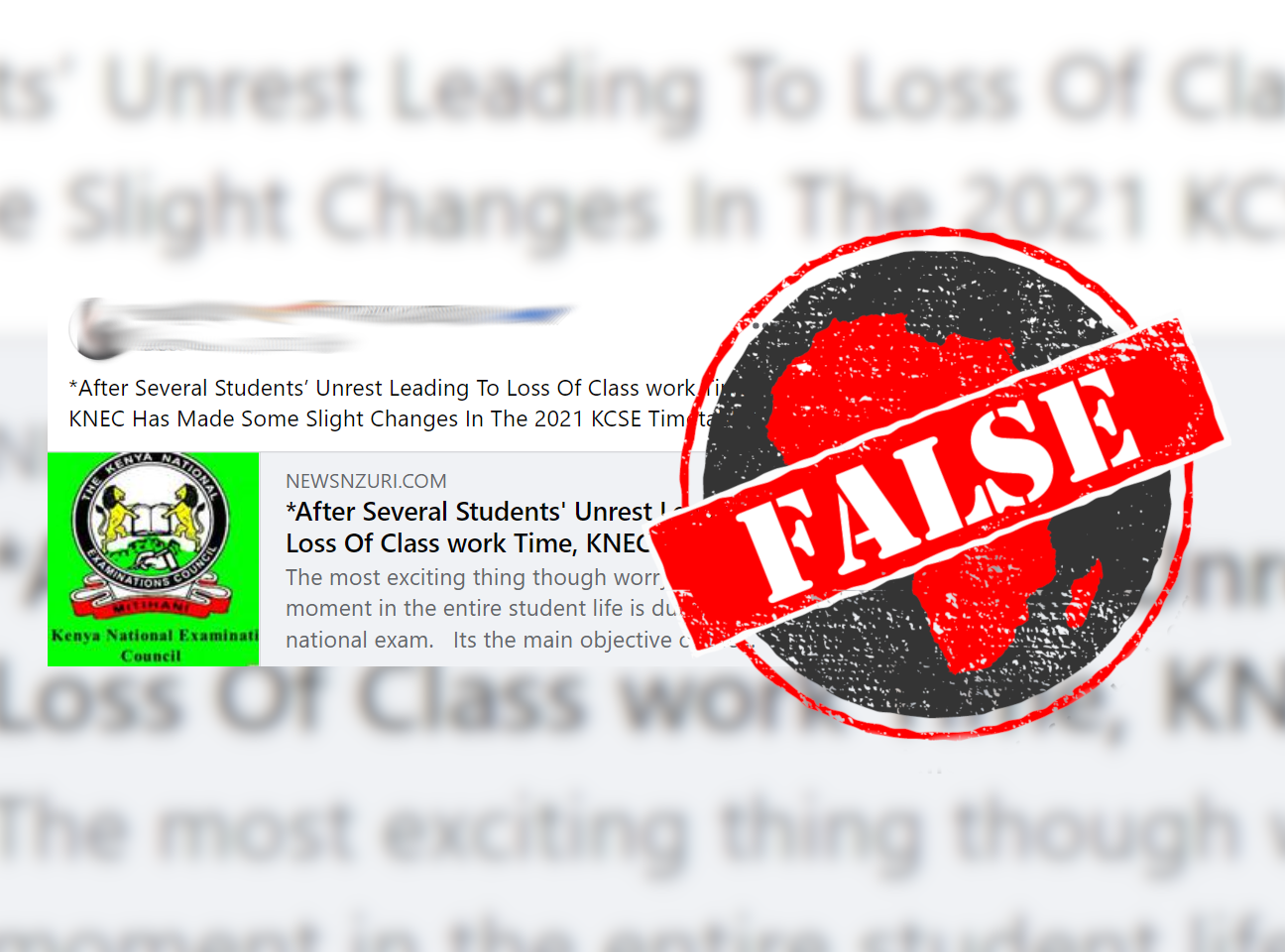“After Several Students’ Unrest Leading To Loss Of Class work Time, KNEC Has Made Some Slight Changes In The 2021 KCSE Timetable,” reads the headline of an article widely shared on Facebook, including on a group page with more than 250,000 members.
In late 2021 Kenya was hit by a wave of student unrest, with buildings torched and other property vandalised. At least 35 schools were reportedly affected.
KNEC is the Kenya National Examinations Council, which oversees school, tertiary education and other exams. The KCSE is the Kenya Certificate of Secondary Education offered to students in their fourth year of secondary school.
The article claims the “slight” changes to the KCSE exam timetable was because several schools have been closed indefinitely after students burned dormitories.
The article was posted on public Facebook groups with a combined membership of over 600,000 here, here, here, here, here and here, seemingly by the same user, throughout December 2021.
Has Kenya’s exams council changed the 2021/22 KCSE exams timetable as a result of the student unrest?

‘Revised’ timetable same as original timetable
Other than the headline, the article does not give any information about the timetable changes. Only at the end does it post a “copy of the final revised timetable”.
But a comparison between the timetable released by KNEC and the supposed revised timetable shows no difference.
On 8 December the exams council posted a screenshot of the article headline on Twitter, with “FAKE” written across it in red.
The attached news is fake. pic.twitter.com/6php7TqUW9
— KNEC (@ExamsCouncil) December 8, 2021
“The attached news is fake,” the tweet reads.
Republish our content for free
For publishers: what to do if your post is rated false
A fact-checker has rated your Facebook or Instagram post as “false”, “altered”, “partly false” or “missing context”. This could have serious consequences. What do you do?
Click on our guide for the steps you should follow.
Publishers guideAfrica Check teams up with Facebook
Africa Check is a partner in Meta's third-party fact-checking programme to help stop the spread of false information on social media.
The content we rate as “false” will be downgraded on Facebook and Instagram. This means fewer people will see it.
You can also help identify false information on Facebook. This guide explains how.


Add new comment